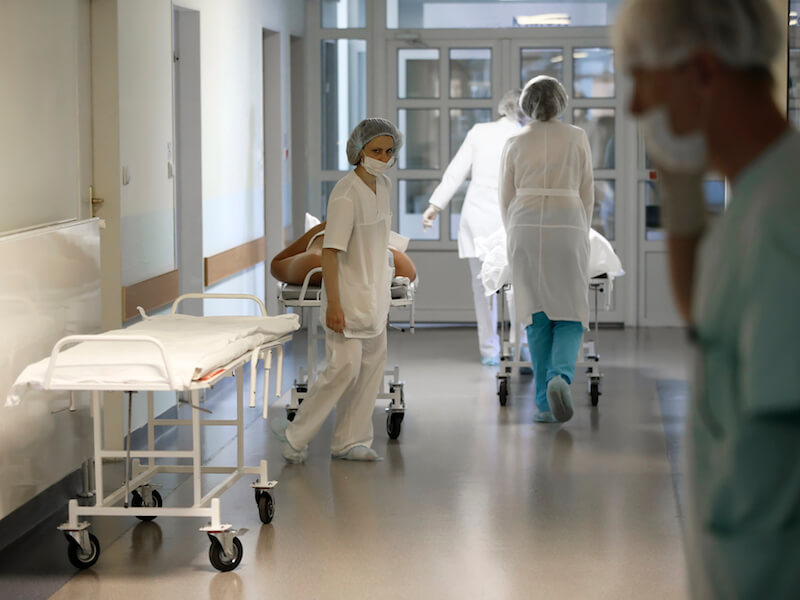
Having to go to the ER can be personally and financially costly. What if you could reduce your risk of falls, accidents, anxiety, depression, and even dementia while also preventing trips to the ER.
Surfacing research makes the case that, for people with severe hearing loss, using their hearing aid could be the difference between staying involved and healthy and ending up spending many evenings in the emergency room.
The Research
This University of Michigan research assembled participants which ranged from 65-85. Each had severe hearing loss. But out of all of those who participated, only 45% of them used their hearing aids on a regular basis.
Other researchers have also shown that hearing aids were worn regularly by only 30% of people who had them.
Of the 585 individuals in the hearing aid group, 12 fewer people found themselves in the ER or non-elective hospital stay.
This may seem like a small number. But statistically, this is significant.
And there’s more. They also found that those who wore their hearing aids spend, on average, one fewer day in the hospital. Their time at the ER was probably decreased because they were more likely to show up for their regular doctor’s appointments.
How Might Hearing Aids Decrease The Need For Emergency Care Visits?
First for the obvious one. You would be less likely to require emergency care if you are paying attention to your health.
Also, people who use their hearing aids remain more socially engaged. When a person is socially connected they are usually more committed to keeping keep their appointments and also have more support from family and friends getting to the doctor.
For those bringing themselves, it means that they can drive more safely with less anxiety about what they can’t hear.
In addition, a U.S. study found that individuals with hearing loss who don’t wear their hearing aid are twice as likely to be depressed. Health concerns related to lack of self care is frequently an outcome of depression.
Thirdly, various studies have shown that wearing your hearing aid can decrease fall risk and cognitive decline. As a person starts to suffer from hearing impairment, the corresponding part of the brain begins to decline from lack of use. The rest of the brain is ultimately affected. As this occurs, people often experience dementia symptoms and the disorientation and lack of balance associated with falls.
Falls are one of the major causes of death among those over 65, and the consequent hospital stays last twice as long.
These are just a few of the reasons that hearing aids help minimize trips to the ER.
Why do so Many People Avoid Wearing Hearing Aids?
It’s difficult to come up with a legitimate excuse.
Fear of looking old is one major reason why some individuals don’t wear their hearing aids. 25% of people over 65 and 50% of people above the age of 75 have hearing loss and yet this perception of looking old with hearing aids remains. Hearing impairment isn’t rare. It happens to lots of people. Additionally, hearing loss is increasing even among 20-year-olds because of earbuds and the rise in noise pollution.
Ironically, continuously asking people to repeat themselves often makes a person appear a lot older than they are.
Some individuals cite the price of hearing aids. However, financing is possible for hearing aids and costs have come down in the past few years.
Some individuals don’t like how hearing aids sound. In this case, your hearing specialist can help you recognize what settings work best in different circumstances. Hearing aids don’t always fit and sound perfect on the first fitting and sometimes require a number of attempts.
Schedule an appointment with your hearing specialist so we can help you feel more comfortable wearing your hearing aids.